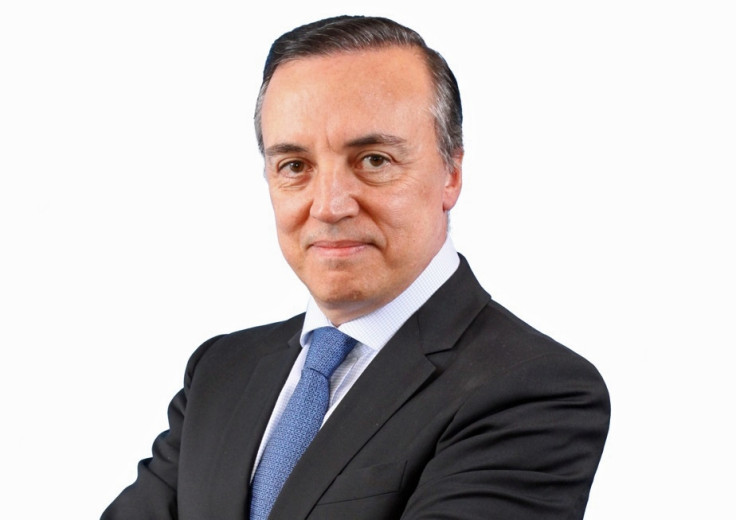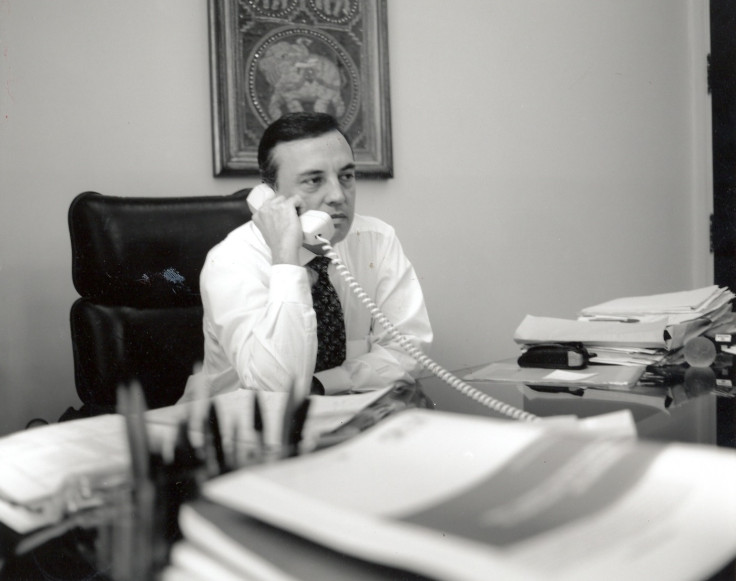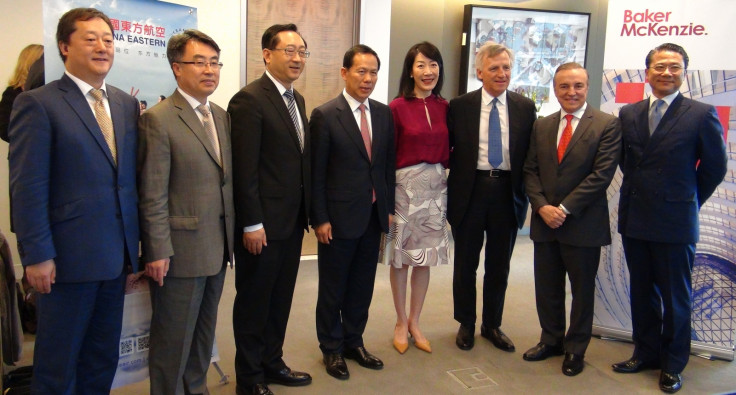London's legal market will thrive after Brexit, says Baker McKenzie's Chairman Emeritus
Eduardo C. Leite tells IBTimes UK the British legal industry is in a great place and will remain so regardless of Brexit.

London will remain a global centre for business and continue to retain high quality legal and financial talent regardless of Brexit permutations, according to Eduardo C. Leite, Chairman Emeritus of Baker McKenzie, one of the largest law firms in the world.
Speaking exclusively to IBTimes UK, Leite, who until recently, oversaw his firm constantly rank at or near the legal industry's summit, says he is not at all pessimistic about Brexit and the future of London's legal market.
"The British Capital's legal market is known and sought after for its diversity, quality and multiculturalism and this will continue. In fact, we see [post-Brexit] opportunities."
Since the triggering of Article 50, Baker McKenzie has seen an uptick in advisory work, especially in trade and taxation.
"The UK's largest trading partner will remain the EU, but the British government is anxious to sign free trade deals with other key markets such as Australia, Canada, India, New Zealand and the United States.
"Our firm is very well positioned to continue advising clients on the legal and commercial implications of the UK's withdrawal from the EU framework."
In fact, Baker McKenzie, which reported an 8% rise in total global revenue to $2.62bn (£2.01bn) in 2016, made a bold statement of intent in October by appointing its former London managing partner – Paul Rawlinson – as Leite's successor, and its first British Global Chairman since it was founded in Chicago, US back in 1949.
Leite says the move was long overdue given the international nature of Baker McKenzie's business. "Recently we've seen more from clients in emerging markets who start from national or regional and go global. Outbound work is on the rise in places such as China, which is one of our priority locations along with New York and London."
An industry that's become a 'bit too greedy'
The man who went on to Chair the global legal behemoth says the industry he joined as an aspiring lawyer in 1979 has completely turned on its head.
"When I started out as a fresh legal associate, 'marketing' was a bad word among lawyers. In those days, some clients just wanted one invoice per year that said: "for services rendered." We did not pitch for work; that was for advertising agencies.
"We just asked the clients to give us the facts and we would tell them the law. And narrating the law required a long research of cases and jurisprudence which we would then articulate in complex and long memoranda that only another lawyer would be able to decipher."

"We are in a much better place today, but the industry has become a bit too greedy, measuring success mostly by financial metrics, not the clients' perception or the quality, the investments in people and innovation, which I think are important ways of measuring the quality of the fabric of firms and institutions in general."
That said Baker McKenzie's headline metrics would make anyone swoon. The firm, which started off with four lawyers in 1949, currently has over 13,000 people working for it and an alumni that includes International Monetary Fund's Managing Director Christine Lagarde.
"We are in a much better place today, but the industry has become a bit too greedy, measuring success mostly by financial metrics, not the clients' perception or the quality, the investments in people and innovation, which I think are important ways of measuring the quality of the fabric of firms and institutions in general."
The firm's PEP or profits per equity partner - an important industry metric - rose by 13% in dollar terms last year, seeing each of the partners net $1.3m.
During Leite's tenure as Chairman, the firm opened 11 new offices in eight countries taking its operations to 77 offices in 47 countries.
It also grew its revenues by 25%, profits by 16%, and increased its increased global headcount by 31%, including an industry-record 40% average annual female partner promotions, under his watch.
The firm was recently confirmed as the leading global legal brand for the seventh year in a row extending its lead on its nearest competitor - Clifford Chance - on the Acritas legal index, an accolade which the industry veteran attributes to a collective endeavour.
"The sectors in which we are seeing the most client growth are information technology, communications, healthcare, and consumer and retail."
As for retirement, what's that? Asks the Uruguay-born Chairman Emeritus, who speaks five languages and has spent his career spanning decades wheeling and dealing from Tokyo to Sao Paolo, London to Miami, and pretty much all else in between.
"Since 1 January, I've been based in New York, and developing new areas of Baker McKenzie North and South America practices. My challenges today are similar in nature, though smaller in scale from those I had as Global Chairman.
"The similarity is that in my new role I also need to focus on building bridges among practices, people and countries, nurture talent and – as always – I must keep my ears on the ground, paying close attention to what clients are telling me about their needs in a more complex and uncertain business environment."
The natural resources legal eagle
Over last seven years, the legal industry has seen Leite as the global brand ambassador for Baker McKenzie. In that time, atop client commitments, his diary was typically packed with demands to give keynote speeches in the Middle East, partake in panel discussions at the World Economic Forum in Davos, press calls with policymakers and photo opportunities at the inking of signature agreements.

In such a setting, it is easy to lose sight of the fact that he is one of the most respected legal minds in the natural resources sector, and at one point in his career led Baker McKenzie's Global Energy, Mining & Infrastructure Industry Group.
So what does he make of the current natural resources sector climate – especially the 'lower for longer' oil price environment? "Today's macroeconomics are largely being driven by uncertainty. The mining sector calls this VUCA or 'volatile, uncertain, complex and ambiguous.'
"The oil and gas sector is still adapting to the changing price of oil. The first quarter of this year saw a renewed momentum in the oil and gas deal landscape with an increase in deal value. Based on our research with Oxford Economics, we expect a modest recovery in mergers and acquisition (M&A) activity in the next two years as oil prices rise, with activity peaking at $222bn in 2018; but that's still well short of the sector's high-water mark of $399bn in 2012."
Combined with fracking advances, there is an argument that US energy output could increase in spite of weak prices.
Leite says the tenacity of US independents has turned the oil industry on its head with technology being the great leveller.
"Combined with fracking advances, there is an argument that US energy output could increase in spite of weak prices. This cost-competitiveness in step with President Donald Trump's pro-energy administration could very well affect where the US sits on the global production scale, and that remains to be seen."
Yet, Leite who has seen oil price fluctuations and the industry's response to it in his decades-long career says deeming what's afoot to be a tectonic shift sounds like a soundbite too far. "That said technological advances, geopolitical changes, environmental issues and human social assumptions affecting today's oil and gas business certainly make for some significant and interesting changes."
Not missing airports and hotels all that much
Having served as Baker McKenzie's Global Chairman, a time he describes as a "privilege" and the "most amazing experience" of his life, Leite no longer misses his jet-setting ways.
"Since I finished my term, I have stopped travelling so much and it feels great to be at home and on the ground, away from airports and hotels.
"These days, I find more time to relax with a mix of social interaction and introspection, reading about history, psychology and politics – all three subjects I love – with a bit of music and sports thrown in the mix.
"I have two daughters who are artists (sculpture and cinema respectively) and spending time with them and the family is a great blessing."
© Copyright IBTimes 2025. All rights reserved.






















